CALL TODAY 646-846-1136 | EMAIL
Surgical Experts Dedicated to Improving Lives
At Lenox Hill Minimally Invasive Surgery PLLC, Dr. Valery Dronsky and his staff of medical professionals provide compassionate care with the highest ethical & professional standards. In our state of the art facility, we offer surgical services using only the most cutting edge and current procedures and treatments. We specialize in general surgery, including extensive experience in performing hernia repair surgery. Our expertise is in minimally invasive surgery and robotic surgery. Minimally invasive and robotic surgery often allow patients to experience easier recovery than traditional open surgery. They also allow for more precise and less traumatic surgery. When robotic and minimally invasive surgery is not an option, we are also skilled and experienced in traditional open surgical procedures.
Dr. Dronsky is an experienced and highly skilled surgeon having undergone extensive training in school, residency and fellowships. He practices medicine with ethical behavior, compassion and superb bedside manner. In the operating room he exhibits precision mechanical abilities, analytical thinking and the ability to visualize tissue in three dimensions. These innate and learned skills allow Dr. Dronsky to be one of the most dexterous and skilled professionals in New York City and the Country.
Call us: 646-846-1136
PATIENT TESTIMONIALS
Recent Awards
We are honored and deeply appreciative to have consistently received prestigious awards and recognition year after year, establishing us as one of New York’s foremost hospitals for a wide range of general surgeries, safety measures, specialized procedures, and overall excellence in healthcare. At Lenox Hill Minimally Invasive Surgery, our unwavering commitment lies in delivering exceptional care and unwavering support to our patients, guaranteeing their safety and successful recovery throughout their entire surgical experience.
Hospital Quality Awards
 America’s 50 Best Hospitals Award™ (2023, 2022)
America’s 50 Best Hospitals Award™ (2023, 2022)
Top 1% in the nation for providing the highest clinical quality year over year.

America’s 100 Best Hospitals Award™ (2021)
Top 2% in the nation for consistently delivering clinical quality year over year.

America’s 250 Best Hospitals Award™ (2023, 2022, 2021)
Top 5% in the nation for consistently delivering clinical quality.

Patient Safety Excellence Award™ (2023, 2022)
Top in the nation for providing excellence in patient safety by preventing infections, medical errors, and other preventable complications.
Specialty Clinical Quality Awards

America’s 100 Best Hospitals for Cardiac Care Award™ (2023, 2022, 2021, 2020, 2019)
Superior clinical outcomes in heart bypass surgery, coronary interventional procedures, heart attack treatment, heart failure treatment, and heart valve surgery.

America’s 100 Best Hospitals for Coronary Intervention Award™ (2023, 2022, 2021, 2020, 2019)
Superior clinical outcomes in coronary intervention procedures (angioplasty with stent).

America’s 100 Best Hospitals for Prostate Surgery Award™ (2023, 2022, 2021)
Superior clinical outcomes in prostate removal surgery and transurethral resection of the prostate.
Click to see all of our Healthgrades best doctors awards
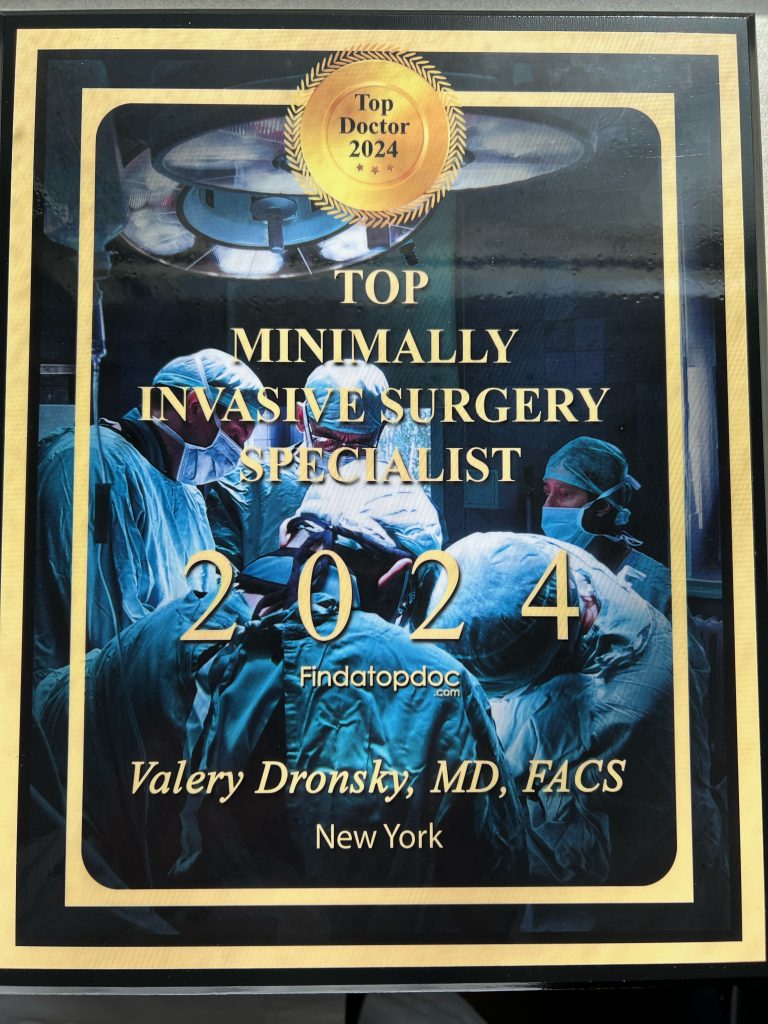
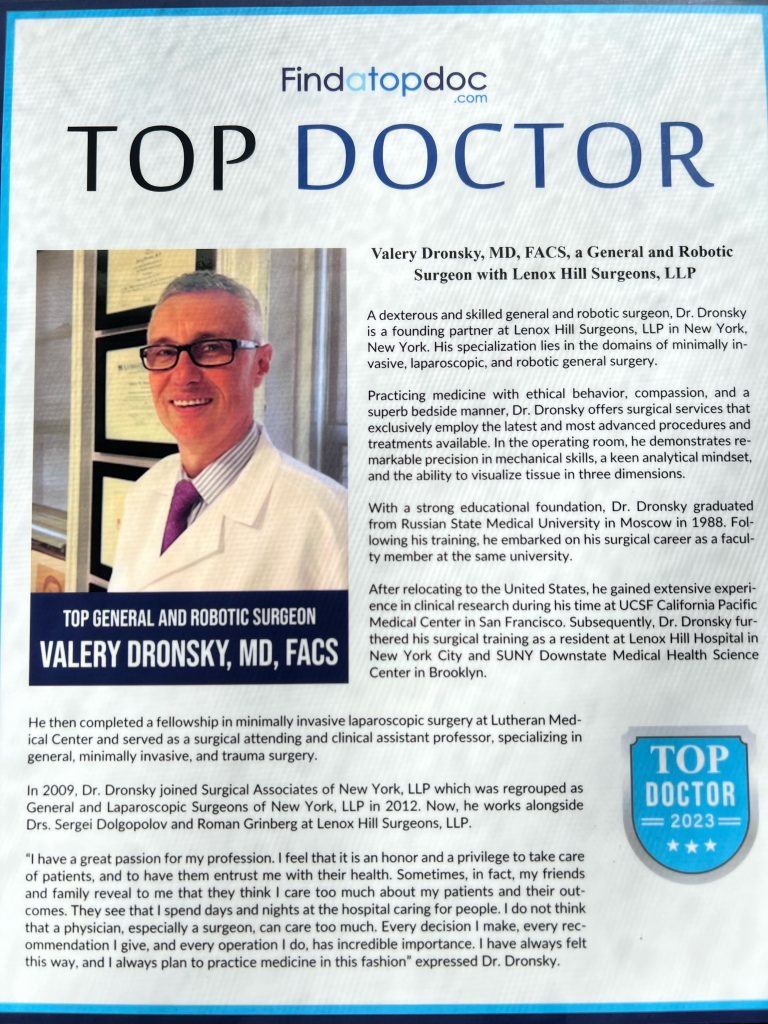


Visit our main website at www.LenoxHillMinimallyInvasiveSurgery.com
Blog Posts are Below:
Monthly Archives: January 2019
Liver Cancer Surgery: Steps, Benefits, Side-Effects, Precautions & Prognosis
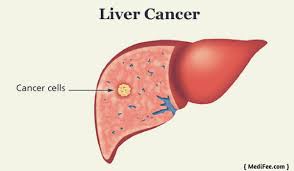 When an area of the human liver is surgically removed, it is known as the liver resection. The most typical reason for such operative procedures is to eliminate metastases of the liver, i.e., liver cancer. Metastases are essentially cancer-causing cells that have propagated from the liver to another area inside the body. Liver resection surgery is also recommended for benign liver problems.
When an area of the human liver is surgically removed, it is known as the liver resection. The most typical reason for such operative procedures is to eliminate metastases of the liver, i.e., liver cancer. Metastases are essentially cancer-causing cells that have propagated from the liver to another area inside the body. Liver resection surgery is also recommended for benign liver problems.
Steps
A liver surgery could either be laparoscopic, also known as minimally invasive, or traditional/open. The two major types of surgery for treating early liver cancer are as follows.
- Liver resection/lobectomy
Removing the cancerous and also the surrounding tissues in one’s liver is called a resection. When a lobe of the patient’s liver is removed, it is known as lobectomy/hemi-hepatectomy. - Liver transplant
It is performed in patients with HCC or hepatocellular liver cancer.
Benefits
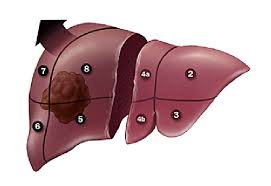 Resection means the partial or total removal of a body organ. The human liver’s phenomenal regenerative ability permits it to continue working, even when some parts of this vital organ are removed. Liver resection provides the best opportunity for long-term survival or even cure for patients with liver cancer. Removing a malignant tumor from one’s liver is the surest way of:
Resection means the partial or total removal of a body organ. The human liver’s phenomenal regenerative ability permits it to continue working, even when some parts of this vital organ are removed. Liver resection provides the best opportunity for long-term survival or even cure for patients with liver cancer. Removing a malignant tumor from one’s liver is the surest way of:
- Eradicating the cancer
- Preventing its growth to other regions of the body
- Curing cancer or extending one’s life expectancy
Side-Effects
- Excessive bleeding is pretty much standard for up to forty-eight hours post-surgery
- Acute (generally occurring in the first one to two weeks post-operation) or chronic (very rarely happening after a year post-surgery) rejection of the transplanted liver by the patient’s immune system
- Infection
- Sleep disturbances
- Depression and anxiety
Precautions
Wound care:
- The patient should religiously follow the instructions provided by the caregiver.
Care provider should be contacted if the:
- Patient has a fever
- Wound is swollen, warm, and red
- Region surrounding the wound is painful and does not subside with medication or rest
- Stitches are found to be becoming loose
- Patient is experiencing trouble breathing or chest pain and which is becoming worse over time
- Patient is not able to ingest and is losing weight
- Foul smelling leakage is oozing from the wound
- Experiencing severe pain in the upper abdomen
- Skin of the patient is turning yellow, or the eyes are becoming white
- Wound is bleeding continuously and without any cessation
- Patient is experiencing new and sudden pain in one’s chest, which intensifies at the time of coughing or taking deep breaths, and may also cough up blood
- One has difficult breathing and suddenly feels lightheaded
- One’s leg or arm feels painful, tender, and warm; and may even appear red and swollen
Prognosis
The (National Cancer Institute’s Surveillance, Epidemiology, and End Results) SEER database classifies cancer cases into the following summary stages:
- Thirty-one in every hundred patients with localized liver cancer
- Eleven in every hundred patients with regional liver cancer
- Three in every hundred patients with distant liver cancer
Note: The figures mentioned above indicate to the five-year survival rate in all the three stages.
Conclusion
Surgical resection is usually recommended for patients diagnosed with major and minor liver tumors. Mortality and morbidity rates have increased for sure, after the recently growing trend of applying newer surgical procedures like laparoscopic liver resection using radio-frequency ablation to transect liver parenchyma.
Contact us today to schedule an appointment and get the required care as soon as possible.
References
- https://www.ncbi.nlm.nih.gov/pmc/articles/PMC2828596/
- https://www.cancerresearchuk.org/about-cancer/liver-cancer/treatment/surgery/liver-transplant/problems-after-surgery
- https://www.drugs.com/cg/liver-resection-aftercare-instructions.html
- http://www.upmc.com/SERVICES/LIVER-CANCER/TREATMENTS/SURGICAL-RESECTION/Pages/default.aspx
- https://www.cancerresearchuk.org/about-cancer/liver-cancer/treatment/surgery/types-surgery
Hernia Repair Surgery: Overview, Types, Precautions & More
Hernia Repair Overview
You’ll be considered for a hernia repair surgery if visceral tissues constituting internal organs like the brain, groin or abdomen become herniated. Herniation of the viscera including the abdomen, intestines, heart, and lungs cause these organs to become bulged or swollen, forcing them to protuberate through the walls sheathing them. Two of the most predominating kinds of a hernia is an inguinal hernia (involves the groin) and umbilical hernia (entails the umbilical cord).
Surgical intervention becomes indispensable to prevent or allay unwarranted complications shortly as a hernia usually tends to grow bigger with the passage of time. Hernia surgery is a simple procedure is conducted as an outpatient mode, doing away with the need to stay in the hospital.
Types
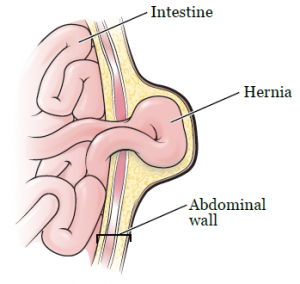
Regardless of whether your hernia is diagnosed as reducible, irreducible or strangulated, you could opt for either of the two broad types of hernia repair surgery: “genioplasty’ and :”herniorrhaphy”. Herniorrhaphy is the conventional mode of correcting or repairing a hernia.
The surgeon creates a large incision over the area surrounding the bulging tissues or organ. Then, he does away with the protuberance so that he can put the displaced organ back to its original position. At last, the opening is sutured and disinfected to keep infection at bay.
The surgical procedure of hernioplasty is nearly identical to herniorrhaphy with the exception that the surgeon instead of ligaturing the notch, places a sterilized mesh. Hernioplasty or herniorrhaphy can be done as open surgery or laparoscopically.
What Should You Keep in Mind?
You’ll be eager to go back to leading a normal life once the surgery has been carried out effectively. Do not be alarmed on seeing the IV tube and the bandages or dressings encasing the incisions after you starting gaining consciousness following the surgery. Nursing assistants and hospital staff will be there by your bedside to offer you any help you need.
The faster you’re able to eat, drink, and walk around on your own, the sooner will you be discharged. Additionally, you’ll need to urinate to be considered for an early discharge. Finally, the doctor will let you go home, if and only if there is someone to take you home.
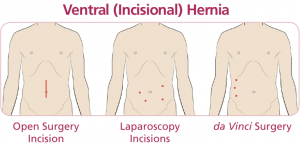
Since you’ll not be in a position to return to a normal lifestyle at least for the first two weeks, it’ll be better if you’ve someone who can take good care of you. Your surgeon will specify the instructions you’ll have to abide by in the days to come, in your discharge note. The doctor will also make you aware of the guidelines verbally which will usually pertain to cleaning and dressing the incisions, the medications you will have to take, the symptoms to look out for, and so on.
You’ll be given a contact number or helpline number in case you need to report a symptom or clarify an issue. You’ll become tired quickly in the first couple of weeks after the surgery but may recuperate completely within 3-6 weeks. You’ll have to amble around frequent to boost circulation which in turn will expedite healing.
You’ll have to keep the openings thoroughly dry so you may have to wait for 3-4 days before you can start showering. Since you’ll be physically weak, you’ll have to stick to a diet rich in fibers as well as take fresh fruits, vegetables and fluids to stay energetic. Pain medications and stress resulting from remaining idle could cause constipation. You can take a laxative to deal with it but only if the doctor allows it.
Concluding Remarks
If your hernia is mild, you may or may not have symptoms. You may be able to live with a herniated organ for a long period, but you never know when the herniation might aggravate leading to grave complications. Hence, it is better to go for repair surgery to stay on the safe side and for complete peace of mind.
Schedule an appointment with us to know more about the advanced forms of treatments that can aid in treating such cases.
References
- https://www.highgatehospital.co.uk/things-you-need-to-know-hernia-operation/
- https://www.webmd.com/digestive-disorders/need-surgery-hernia#1
- http://columbiasurgery.org/news/2014/04/15/hernias-what-you-need-know
- https://en.wikipedia.org/wiki/Hernia_repair
- https://my.clevelandclinic.org/health/treatments/6905-laparoscopic-surgery-for-hernia-repair/risks–benefits
- http://www.medtronic.com/us-en/patients/treatments-therapies/hernia-surgery/about-recovery.html
- https://www.medicalnewstoday.com/articles/319753.php















